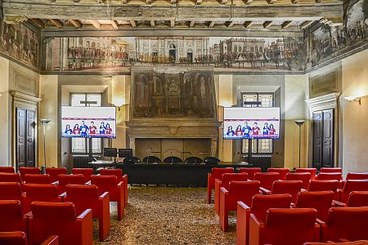Mafia Dynasties: criminal families, from Calabria to the other side of the world
How 'ndrangheta went global

-
Date: 27 FEBRUARY 2024 from 17:30 to 19:00
-
Event location: Sala Rossa, Palazzo Marchesini, Via Marsala, 26 - Bologna - In presence and online event
-
Type: Lectures
Land acquisitions in the Riverina Valley of New South Wales (Australia); a funeral parlour in Vaughan, Ontario (Canada); a village without an elected mayor for 10 years in Calabria, Italy. What do these things have in common? The clans of Italy’s wealthiest and most notorious mafia organisation today, the ‘ndrangheta, from Calabria, are known to have migrated to different places in Europe and beyond, including the Riverina Valley in Australia and Ontario in Canada. The clans of the ‘ndrangheta can be understood as criminal dynasties: their “familiness” – events and choices in the family - impacts on their business. Like all families, the dilemma mafia dynasties face when they migrate is: what do we bring with us? What do we leave behind? The continuous involvement in transnational criminal activities by some migrating ‘ndrangheta dynasties intertwines with the choices made by family members when they settle abroad. In this lecture we will start from an understanding of how ‘ndrangheta dynasties formed and “resisted” in Calabria, in villages that sociologist Alessandro Pizzorno would have called “a furnished inferno”, a place that is perceived as having no hope of changing no matter how much one invests in it. We will then look at how these dynasties moved and how they reacted, differently, to the many challenges of migration in a globalised world: discrimination, intergenerational changes, nostalgia, return, and also criminal competition.
DO YOU WANT TO ATTEND THIS lecture?
-
Sala Rossa, Palazzo Marchesini, Via Marsala, 26 - Bologna
If you prefer to attend this lecture in presence, you should write to segreteria.isa@unibo.it within February 27, 12 p.m. and book your place. The places will be assigned on “first come first served” basis.
Please note that the building is not equipped so as to facilitate access for wheelchair users or people with mobility issues.
PhD students and researchers who are interested may request an attendance certificate by writing to segreteria.isa@unibo.it specifying their birthplace and date of birth.
The delivery of the attendance certificate requires the attendance of at least 70% of the lecture.
